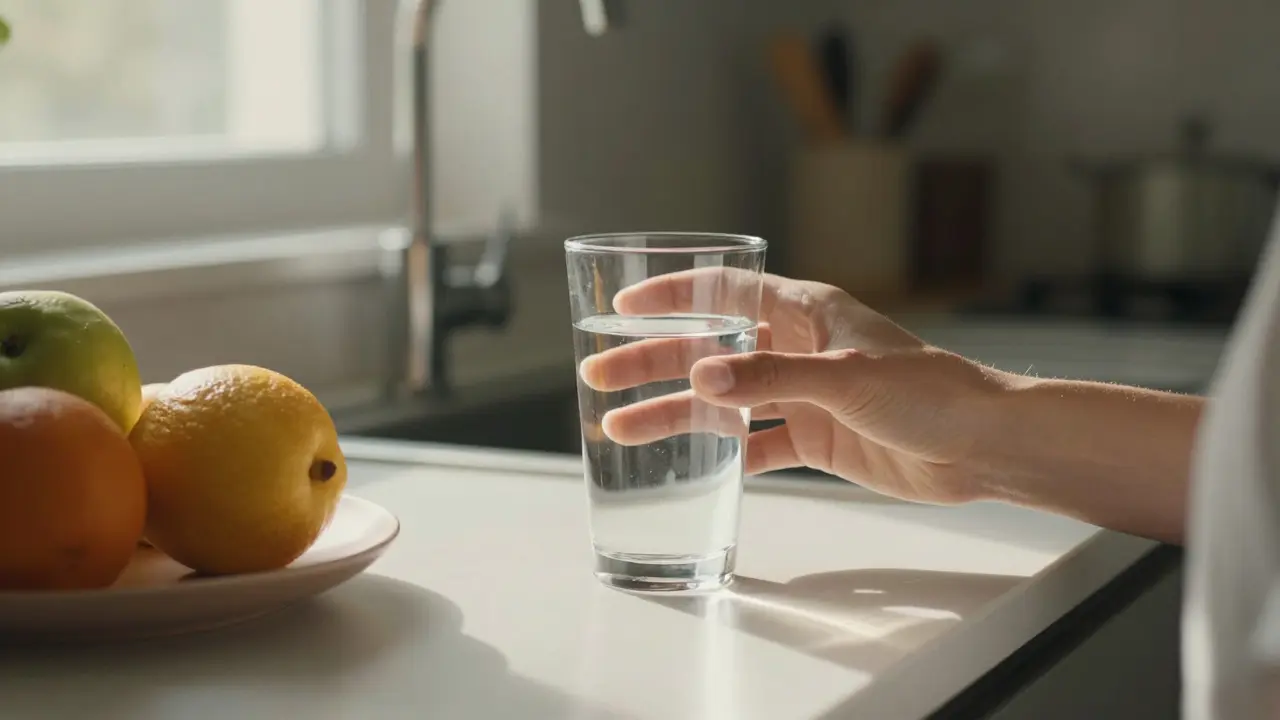Feeling run down, stressed, or just off your routine? This page brings together short, usable advice on stress relief, gut health, biofeedback, exercise, and setting health goals—written for busy military life. You won’t find fluff here. Each tip is something you can try this week.
Want less stress right now? Try a five-minute breathing break: sit comfortably, breathe in for 4, hold 2, out for 6. Do it twice a day. For sleep, cut screens 30 minutes before bed and dim lights. If digestion feels off, add one extra serving of fiber-rich food—oats, beans, berries—and drink an extra glass of water with it.
Short walks are powerful. A 20-minute walk outdoors lifts mood, improves circulation, and helps clear your head after a shift or training. No gym? Bodyweight moves—squats, push-ups, planks—done in circuits for 10–15 minutes raise heart rate and boost strength.
Pick one health goal for 30 days. Make it specific: "Add one vegetable to dinner" beats "eat healthier." Track it with a note on your phone or a calendar. Small wins build momentum. Pair the habit with something you already do—brushing teeth, coffee, or briefing prep—so it becomes automatic.
Biofeedback tools can speed up stress control. Simple devices and phone apps show your heart rate or breathing patterns so you can learn what calms you. Use a 5–10 minute session after work or before sleep to lower anxiety and improve focus. If you’re curious, start with a free app or ask your clinic about options covered by TRICARE.
Gut health matters for energy and mood. Add fermented foods like yogurt or kefir, eat diverse plants, and avoid long stretches without food if you’re on a shifting schedule. If you take medications, check interactions—some antibiotics and supplements affect gut flora. Use the site’s formulary search to confirm coverage and dosing rules before trying new supplements.
Thinking about red wine for heart health? If you already drink, keep it moderate—one glass for women, up to two for men—never start drinking for health reasons. Real benefits come from a pattern of healthy habits, not a single food or drink.
Where to go next: read focused guides on stress reduction, gut-brain links, biofeedback, and setting health goals. Use the TRICARE Prescription Explorer to check whether a medication or supplement is on your formulary and learn about tiers, copays, and pharmacy rules. That saves money and avoids surprises at the pharmacy counter.
Pick one tip above and try it for a week. Small, steady changes make the biggest difference—especially when your schedule changes. If a concern feels beyond self-care, talk to a provider. You deserve practical, doable steps that fit military life.

Discover science-backed healthy breakfast ideas that boost focus and energy for a productive morning. Learn quick recipes, common mistakes to avoid, and meal prep tips for lasting energy without the crash.
Read More
The secret to achieving health goals isn't willpower - it's building tiny, consistent habits that become automatic. Learn how to design your environment, track progress simply, and stick with it long-term.
Read More
Setting small, consistent health goals can transform your energy, mood, and relationships-not by drastic changes, but through daily habits that build confidence and reduce stress over time.
Read More
Learn practical, science-backed relaxation techniques to reduce daily stress, improve sleep, and reset your nervous system-no apps or special equipment needed. Start with just five minutes a day.
Read More
A healthy gut is the foundation of overall health, affecting digestion, mood, immunity, and energy. Learn how food, stress, and daily habits shape your gut microbiome-and simple steps to rebuild it.
Read More
Learn simple, science-backed relaxation techniques to fall asleep faster and sleep more deeply without pills or gadgets. Try breathing, muscle relaxation, and guided imagery tonight.
Read More
Discover how travel boosts mental health, relieves stress, strengthens immunity, and transforms wellbeing. Learn why packing your bags is a dose of self-care you didn't know you needed.
Read More
Discover effective stress reduction strategies, backed by science and practical tips, to boost mental and physical health for a happier, healthier life.
Read More
Explore how gut health and metabolism are tightly connected, why your microbes matter more than you think, and how to boost both for lasting health and weight control.
Read More
Ever wondered how to become truly aware of your body and calm your mind on command? This article walks you through how biofeedback works and why it’s such a game-changer for mindfulness. You’ll learn what happens inside your body when you’re stressed or relaxed, plus how to harness simple gadgets to tune into those signals. We’ll share practical ways to use biofeedback tools in everyday life, whether you want less anxiety, better focus, or simply a break from racing thoughts. There are real stories, clear tips, and zero fluff.
Read More